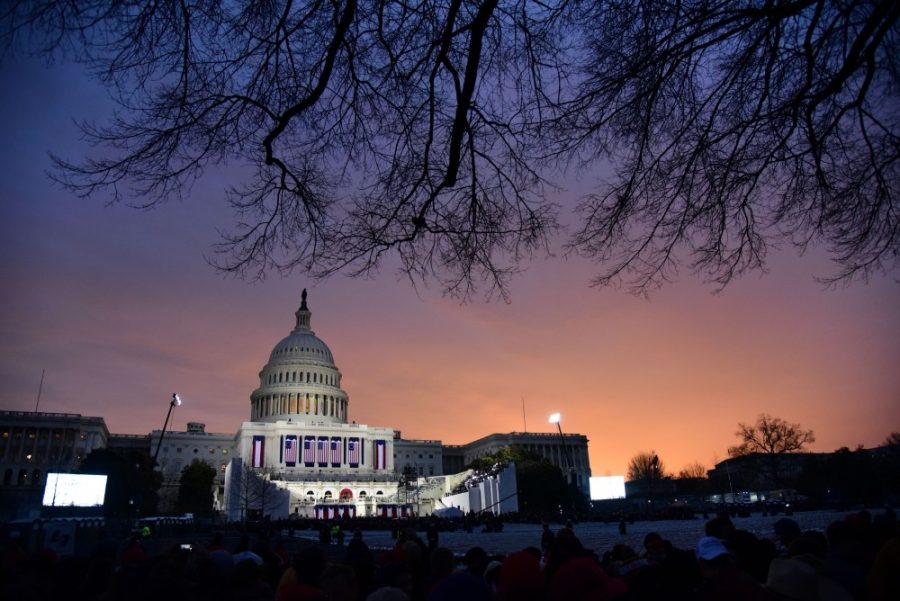This story was produced as part of the Daily Wildcat’s “Election Guide” special print edition, published Wednesday, Oct. 21, and available on campus or online.

When it comes to U.S. territories, you can find a mess of restricted rights and half-assed citizenship for those living within them. In the 15 territories, with 4 million inhabitants, the U.S has marginalized the inhabitants and caused the mass disenfranchisement of their populations for decades. The territories include Puerto Rico, Guam, the U.S. Virgin Islands, American Samoa and the Northern Mariana Islands, as well as a few uninhabited islands. When it comes to the rights and citizenship in the territories, things get a bit complicated.
Puerto Rico’s official classification is “unincorporated territory” of the United States. This means that only select parts of the U.S. Constitution apply to residents, although most federal laws apply just the same. Puerto Rico is also a commonwealth of the United States and has a close relationship with the Federal government, with inhabitants receiving U.S. citizenship at birth. These rights extend to the ability to serve in the military and government services, but they lack the right to vote and have no electoral representation; they are not even permitted the right to elect a representative to send to Congress.
RELATED: President Trump’s COVID-19 treatment plan: What was it exactly?
Guam, the U.S. Virgin Islands and the Northern Mariana Islands, similarly to Puerto Rico, are unincorporated territories and only select parts of the constitution apply to residents. Residents are also considered citizens and are allowed to serve in the military. Guam has extremely high rates of military service, and 1 in 8 of those living in Guam have served. These territories are allowed to elect and send a delegate to the House of Representatives, as well as to attend Democratic and Republican conventions. However, this delegate possesses little to no voting abilities and inhabitants of these territories do not have the right to vote.
American Samoa is one of the most marginalized territories as they do not possess many of the already limited rights of the other territories. In addition to being an unincorporated territory like all the others, they are an “unorganized” territory as well. This means they have no congressionally implemented system of government and do not receive full citizenship upon birth. Inhabitants of American Samoa are regarded as Nationals, meaning that to acquire citizenship they will first need to follow a similar process to that of someone trying to immigrate to the United States. The process will include tests in English, U.S. history and civics, as well as upwards of $700 in fees.
RELATED: OPINION: The war on critical race theory silences minority experiences to preserve white ignorance
If the obstacles made to restrict the rights of American Samoans don’t sound eerily similar to literacy tests and poll taxes, then please, continue on. Arguably one of the most patriotic populations, it is evident that one of the few American rights bestowed upon American Samoa is enthusiastically used. American Samoa has historically had extremely high military participation rates, even achieving the number one recruitment office in 2014. On top of this, the small island is home to six military bases. On an island where people are not even officially considered American citizens, we see the highest military participation rates, as well as the largest donation of land to military bases proportionately.
In looking at the history of this great saga of oppression we find ourselves with the same Supreme Court that exemplified racism in America. In the early 20th century, shortly after acquiring American Samoa in 1900, the Supreme Court ruled that U.S territories did not have the right to vote. This would be the same supreme court that made the famous ruling in the Plessy v. Ferguson case which coined the term ‘separate but equal’.
Now let me share another story from history with you: the year is 1773. The British Parliament creates a tax on tea in the North American colonies, commonly referred to as the Tea Act. In protest of the taxation by the government, without adequate colonial representation in Parliament, a group of Massachusetts colonists throw a shipment of tea into Boston Harbor. Ten years later, on the same principles from that night, an independent nation stood victorious over its oppressors and began to work on what would be a government meant to represent every single person living under its jurisdiction.
Colonists, much like inhabitants of territories, were demanding fair and equal treatment. I urge you to look closely at something that many of us take for granted and know that fellow Americans are not receiving the level of rights they should be. As you prepare to cast your ballot, remember what our country was founded on and strive for the democracy we are promised. Change can only happen when we all stand up against this injustice and do not accept inequality as good enough.
Lauren is a political science major. She is from Baltimore. Follow the Daily Wildcat on Twitter









